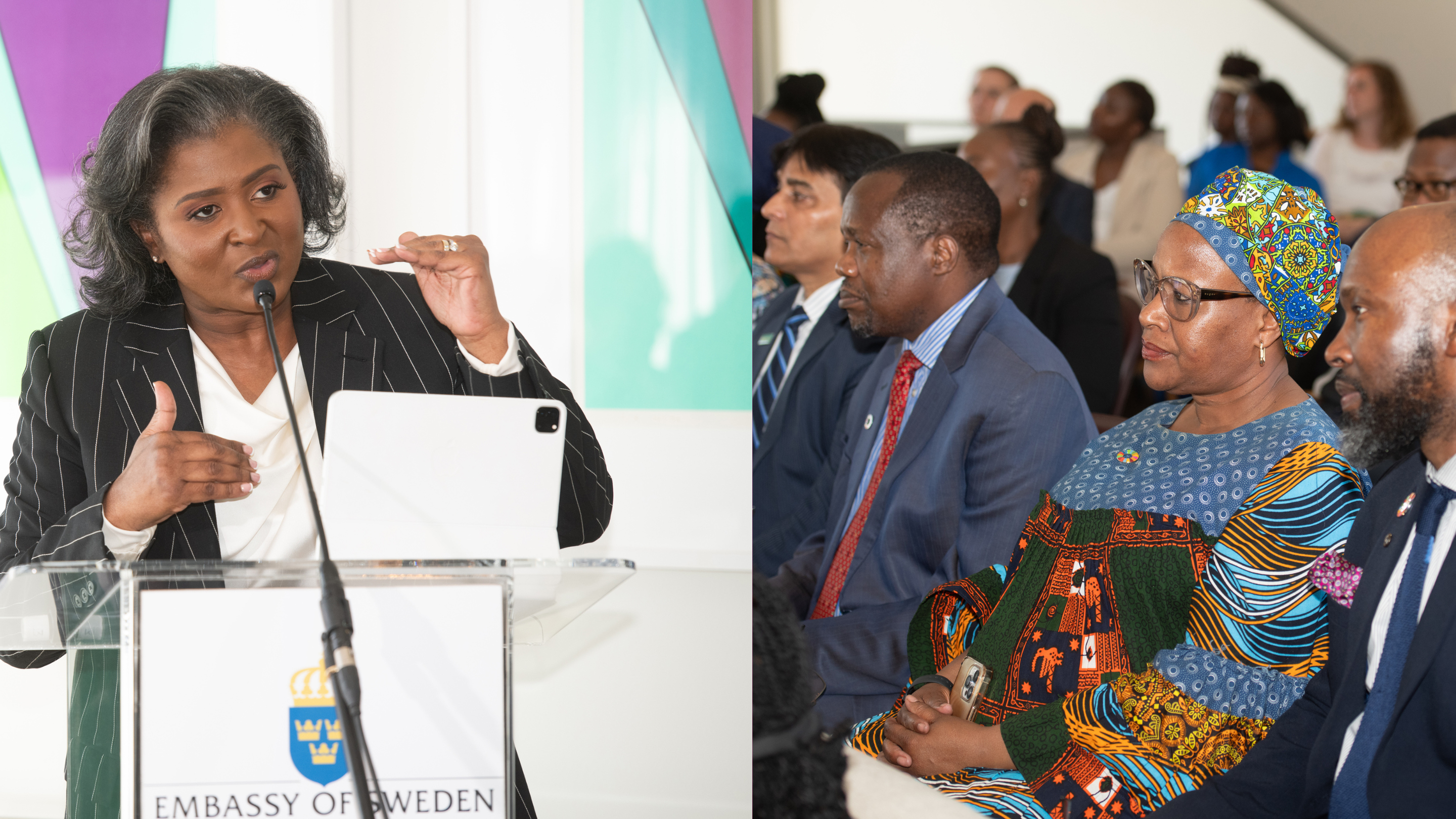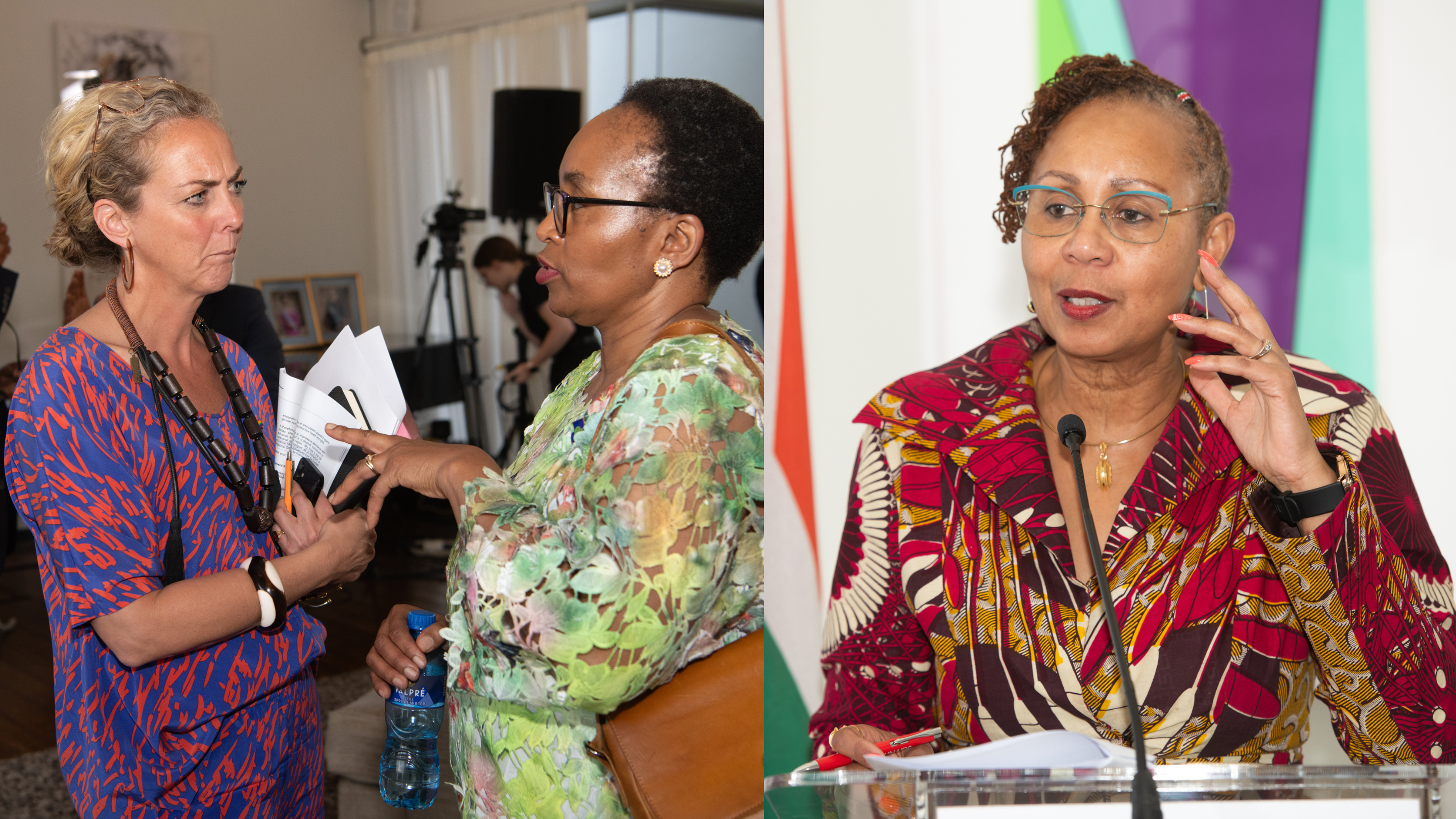The partners roundtable organised by 2gether 4 SRHR in partnership with the Swedish Embassy in South Africa under the theme "Transforming Futures” aimed to identify and explore strategies for accelerating collective regional to advance Sexual and Reproductive Health and Rights (SRHR) in East and Southern Africa.
Setting the tone for the dialogue, Ms. Anne Githuku-Shongwe, Regional Director of UNAIDS, facilitator for the dialogue, stressed the need for urgency, collaboration and partnership to safeguard the progress made and address the challenges in advancing SRHR across East and Southern Africa. She framed the partners’ round table as an opportunity to reflect on the journey so far, drawing on the progress made, lessons learnt and defining what more needs to be done to enable the region to make progress in meeting the global Sustainable Development Goal targets.
Delivering the keynote address, Her Excellency, Mrs. Monica Geingos, the former First Lady of Namibia and United Nations SDGs advocate, highlighted the need for public private partnerships to address society’s complex problems.
Leveraging off the lessons learnt from her work with the Be Free Movement with adolescents and young people in Namibia, Madam Geingos emphasised the importance of using participatory approaches that meaningfully involve and “talk with” beneficiaries in the design of holistic interventions that truly serve the needs of those they aim to serve.
She highlighted the need to ensure that programmes and the services they offer are people centred and integrated with referral pathways to other sectors beyond health such as mental health, social services and skills transfer for employability. She stressed the importance of partnerships and including governments in the design of the programme interventions to ensure that investments are sustainable, and to leverage off the expertise and skills of the private sector to address society’s complex issues.
In conclusion Madam Geingos highlighted the importance of continuing dialogues to build trust and inclusivity to advance human rights and SRHR, while at the same time recognising the need to step away from debates that deflect attention from the task at hand. She stressed the importance of sustainability and scalability and committed herself to continue championing social causes. She encouraged participants to continue their efforts to address the complex issues surrounding SRHR and to build on the progress made through initiatives like the Be Free movement.

Advancing SRHR Through Collaborative Action, Strengthening Health Systems and Expanding Access
His Excellency, Ambassador Håkan Juholt emphasised the importance of unity in addressing human dignity and rights. He reminded the audience that everyone is part of a global family, interconnected and mutually dependent, and that it is through collective efforts like that that a better society is built. Sharing personal reflections using two of his personal paintings as metaphors for the progress and challenges in the fight for equality and human rights in Sweden, Ambassador Juholt noted that the struggle for acceptance and equality for all is an ongoing effort even after laws and policies have been changed.
Dr. Matshidiso Moeti, WHO Regional Director for Africa, called for creative solutions and stressed the importance of dialogues that respect cultural contexts while advocating for universal human rights. Dr. Moeti highlighted the urgent need for collective action to improve maternal health, access to contraceptives, and adolescent health.
Dr. Ben Phiri from the Eastern and Southern African Parliamentary Caucus on SRHR, emphasised the importance of working with communities to drive demand for legislative change highlighting the need for greater investments in efforts to engage communities on SRHR issues to empower grassroots movements that can drive change .
In the dynamic and engaging dialogue that followed, partners from diverse backgrounds offered insights into the opportunities to advance SRHR in the region. Key themes that emerged include:
- Vigilance and Sustained Effort: The necessity for ongoing attention and proactive measures to promote SRHR and to advocate for the rights of women, adolescents, and young people.
- Collaboration across Sectors through multi-sectoral partnerships that involve governments, regional entities, civil society, and private sector partners to advance the SRHR agenda.
- Innovative Solutions: context-specific innovations are required to advance inclusive dialogues, high impact strategies and local leadership to address cultural, legal, and systemic barriers to SRHR.
Concluding the dialogue Ms Elisabeth Hårleman, Head of the Regional SRHR Team of Sweden for Africa, called on participants to reflect on how they can contribute to advancing the SRHR agenda in their respective roles.

A Call to Action for Sustained Momentum
The roundtable concluded with participants collectively reaffirming their commitment to intensify efforts to scale up SRHR initiatives in East and Southern Africa, working in partnership to ensure that SRHR remains a top priority across the region with a focus on inclusivity, sustainability and innovation.
